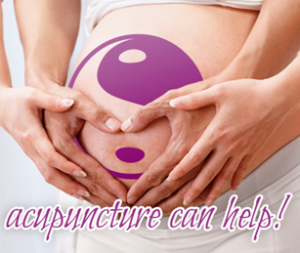Infertility is an emotionally devastating condition that robs people of one of life’s deepest and most basic desires: the ability to create a family.
Thankfully, acupuncture and Chinese herbal therapy can help with a host of underlying conditions associated with infertility including PCOS, premature ovarian failure, endocrine health, and male factor infertility. It can also improve the success of IVF.
The causes of infertility are numerous. In Western nations, it is estimated that 12-20% of couples experience fertility challenges. Lifestyle may be a contributing factor: environmental pollution, poor nutrition including overconsumption of sugar, caffeine, and alcohol, sedentary lifestyle, weight problems, and stress.
Women may have problems with any part of her reproductive system due to shape, inflammation or disease. Hormonal imbalances may also cause an absence or irregularity of ovulation. Acupuncture and herbs are used to regulate different phases of the cycle and restore balance.
About 35% of fertility problems stem from male factors. Evidence suggests that acupuncture has an effect on sperm quality, production and quantity, without causing any negative changes in behaviour or sexual desire.
Every patient has different fertility treatment needs. Traditional Chinese Medicine (TCM) traces the symptoms of infertility back to the origin. Then the cause of a patient’s infertility can be addressed and a better environment to support pregnancy can be introduced. This improves success rates and reduces complications.
Studies have shown that acupuncture and TCM is a simple, non-invasive method that can help couples reach their natural fertility potential.
How Acupuncture and TCM help promote fertility:
- Your unique situation is diagnosed by tracing the symptoms back to the original cause. Treatment involves managing the symptoms and addressing the cause. Chinese herbs and acupuncture are used to restore Qi, the dynamic energy flow of the body.
- Generally improves good health and strengthens your constitution.
- Reduces anxiety and stress. Hormones secreted during stressful situations can significantly decrease fertility.
- Improves the quality of life in patients undergoing in vitro fertilization (IVF).
- Regulates the menstrual cycle.
- Increases blood flow to the uterus: the uterine environment becomes more hospitable, improving the chances of an ovum implanting on the uterus wall.
- Improves ovarian function. Normalize hormone and endocrine systems that regulate ovulation, especially in women with polycystic ovarian syndrome.
- Positively affects the hypothalamic-pituitary-ovarian axis, which plays a key role in fertility.
- Addresses male factor infertility.
Stress and Infertility
Stress hormones impact every organ and system in your body, particularly the reproductive system. Data shows that stress and infertility are inter-related. Studies have shown that strategies which reduce stress also improve outcomes for IVF.
A 2014 study published in the journal Human Reproduction showed that higher levels of stress, as measured by alpha-amylase (an enzyme found in the saliva) are associated with a longer time-to-pregnancy (TTP) and an increased risk of infertility[i]. Chronic stress can lead to decreased pelvic blood flow/fallopian tube movement, resulting in poor egg nourishment and transportation. Acupuncture has been shown to release anti-stress hormones and increase blood flow to the reproductive organs. Women trying to conceive naturally or through IVF benefit from acupuncture.
Steps to take to increase fertility:
- Evaluate your nutrition. Eat nutritious foods, at regular times, and never skip meals.
- Do not overindulge in sweets, caffeine, alcohol, and ice-cold drinks.
- Drugs, like marijuana, impinge sperm quality and motility.
- Maintain a regular, moderate exercise routine.
- Reduce stress at home and at work. Slow down and enjoy nature. Meditate, journal, practice yoga, etc. daily to relax.
- Be positive!
- Make an appointment to discover the why, according to TCM, you are having trouble conceiving.
TCM improves IVF outcomes
Scientific studies have demonstrated that there is a statistically significant improvement in pregnancy outcomes for patients undergoing IVF that has been integrated with TCM diagnosis and treatment.
For example, the British Medical Journal published research in 2008, which concluded that acupuncture is as a significant, clinically relevant adjunct to IVF, minimizing cramping, relaxing the uterus and increasing blood flow for the successful implantation of an embryo within the uterine lining[ii].
In a 2007 study, researchers found that acupuncture may improve the quality of life in patients undergoing in vitro fertilization (IVF). It was also found that women receiving acupuncture reported significantly less abdominal pain, other pain, nausea, and stress two hours after oocyte aspiration (egg collection) compared to women receiving conventional analgesia[iii].
Male Factor Infertility
Between 35-40% of fertility problems in couples stem from male conditions, such as a deficient sperm count, insufficient motility, or poor morphology of the sperm.
Evidence suggests that acupuncture can have an effect on sperm production and quality, without causing any negative changes in behavior or sexual desire. A recent trial published in Fertility and Sterility has shown just how effective acupuncture can be. Ten sessions of acupuncture (twice weekly for 5 weeks), led to increased motility, significant increases in the number of normal sperm and equally significant reductions in structural defects[iv].
Acupuncture and TCM provide
a safe, effective, drug-free, and natural approach to
treating infertility and
enjoying a healthy pregnancy.
[i] C.D. Lynch, R. Sundaram, J.M. Maisog, A.M. Sweeney, G.M. Buck Louis. Hum Reprod (2014) 29 (5): 1067-1075.
[ii] Manheimer, E., et. al. Effects of acupuncture on rates of pregnancy and live birth among women undergoing in vitro fertilization: systematic review and meta-analysis. British Medical Journal. February 2008;336:545-549.
[iii] Alternative Therapies, May/June 2007, Vol. 13 No.3.
[iv] Pei J, Strehler E, Noss U, et al. Quantitative evaluation of spermatozoa ultrastructure after acupuncture treatment for idiopathic male infertility. Fertility and Sterility July 2005;84(1):141-7.


